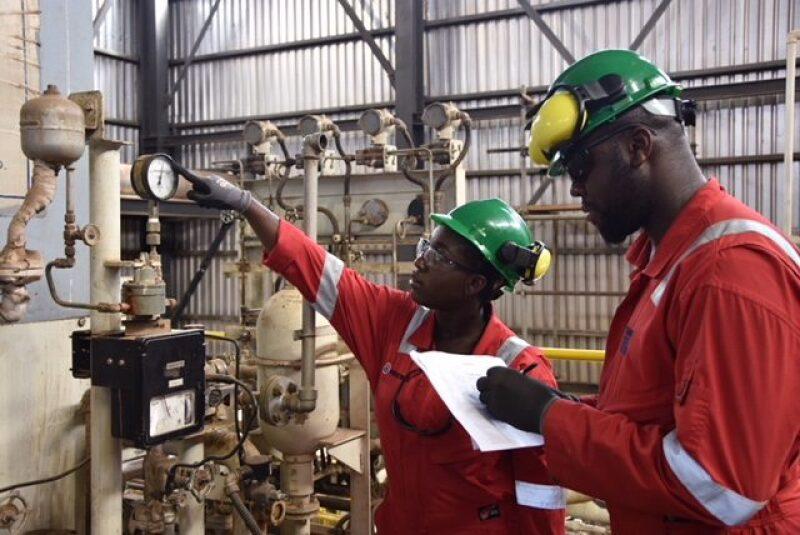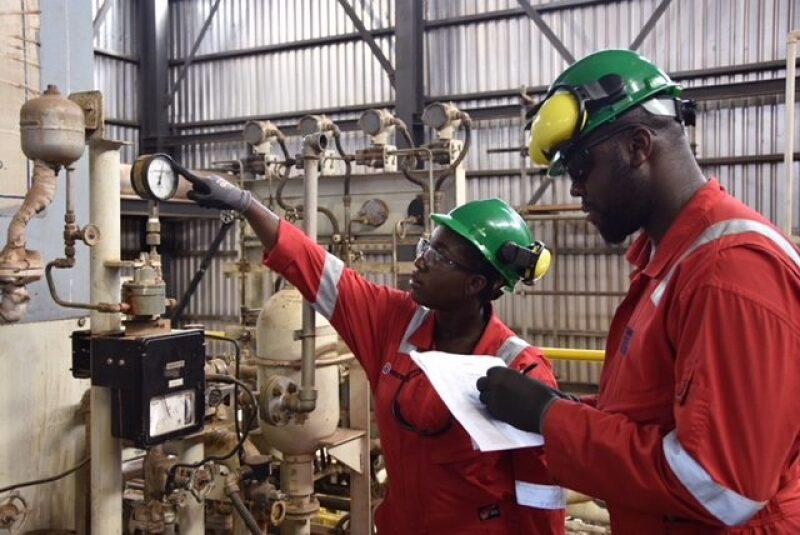Explore Our Bill Payment Services:

- Salary And Allowance
- Engineers Salary
- Ghana
Salary And Allowance Structure Of Petroleum Engineers In Ghana
Petroleum engineering in Ghana is one of the most prestigious and financially rewarding careers in the country. Since the discovery of commercial oil fields in the Jubilee and TEN fields, Ghana’s oil and gas industry has expanded significantly. This growth has increased the demand for petroleum engineers, making it a career path many ambitious young professionals aspire to enter.
The role of a petroleum engineer is not only about overseeing oil extraction; it involves designing efficient drilling methods, managing reservoirs, ensuring safety protocols, and supervising large projects that require both technical expertise and strong leadership skills. The profession is challenging, often requiring work in offshore environments under strict timelines. However, the financial and professional rewards make it highly attractive.
Salaries for petroleum engineers in Ghana are influenced by several factors, including level of experience, qualifications, specialization, employer type (whether a multinational oil company, a local firm, or a government agency), and work location. Offshore positions and those based in cities like Accra tend to pay higher due to the complexities and additional risks associated with these environments.
Let’s break down how salaries grow across different stages of a petroleum engineer’s career.
Compensation by Experience Level
Entry-Level / Graduate Engineers (0–2 years)
Fresh graduates entering the field usually earn between GHS 3,500 and GHS 7,000 per month. These figures depend largely on the university attended, additional certifications, internships, and whether the engineer joins a government body like GNPC or a private oil company.
Some multinational companies may start graduates on a slightly higher range, around GHS 5,500 to GHS 8,000 per month, especially if the role involves offshore work or specialized training. Entry-level engineers often work under close supervision, focusing on learning industry practices while assisting senior staff.
Junior Engineers (1–3 years)
With a couple of years of experience, petroleum engineers begin to take on more operational responsibilities. At this stage, monthly pay typically ranges from GHS 7,000 to GHS 12,000. Junior engineers may supervise certain tasks, run technical tests, or handle smaller aspects of projects. This stage represents the transition from theoretical learning to hands-on engineering practice.
Mid-Level Engineers (3–7 years)
By the time an engineer has between three and seven years of experience, they are considered mid-level professionals. They may oversee project planning, supervise drilling operations, and optimize production processes. Salaries for mid-level engineers usually range from GHS 12,000 to GHS 20,000 per month.
This group is often trusted to lead small teams and handle more critical responsibilities. Engineers at this level also benefit from company-sponsored training and development, which can significantly increase their value in the market.
Senior Engineers / Project Managers (7+ years)
Senior engineers typically manage entire projects or large sections of oil operations. Their role is both technical and managerial, involving decision-making, supervision of multiple teams, and ensuring compliance with safety and regulatory standards. Salaries at this level range between GHS 20,000 and GHS 40,000 per month.
Senior engineers also receive higher allowances due to their responsibilities and the long hours often required in the field. Many at this stage are also groomed for future leadership or consultancy roles.
Executive-Level Engineers / Consultants (15+ years)
Engineers with over 15 years of experience often rise to executive or consultancy positions. They may serve as advisors, oversee entire operations, or work independently as high-level consultants. Compensation at this stage often exceeds GHS 40,000 per month, with top professionals earning far more depending on their reputation and the projects they manage.
Average National Figures
On a broader scale, the average annual salary for petroleum engineers in Ghana is around GHS 60,000 to GHS 90,000, depending on experience. This translates to about GHS 5,000 to GHS 7,500 per month. Entry-level workers may earn closer to GHS 3,000 monthly, while highly experienced engineers can command well over GHS 20,000 monthly, excluding allowances.
City-Level Insight: Accra
Engineers based in Accra usually earn more than their counterparts in other parts of the country. The median monthly salary for petroleum engineers in Accra is around GHS 65,000, with figures ranging between GHS 45,000 and GHS 87,000 depending on experience and company.
For example:
-
0–2 years: around GHS 35,000/month
-
2–5 years: about GHS 45,000/month
-
5–10 years: around GHS 67,000/month
-
10–15 years: up to GHS 78,000/month
-
20+ years: often above GHS 90,000/month
This city premium reflects both the cost of living in Accra and the fact that most multinational oil companies base their operations and management teams in the capital.
Industry-Wide Median Compensation
Across the industry, the median total pay for petroleum engineers is about GHS 27,000 per month. This figure combines a base pay of roughly GHS 15,000, along with GHS 12,000 in bonuses, allowances, and other benefits. The range of pay across different roles spans from GHS 6,000 to GHS 55,000 monthly.
Allowances, Perks & Total Compensation Structure
While the base salary is impressive, what makes petroleum engineering in Ghana especially attractive is the comprehensive allowance and benefits structure. These additional perks often boost total compensation by 30–50% or more.
Housing & Accommodation
Given that many petroleum engineers work in remote or offshore locations, housing support is standard. Some companies provide free accommodation, while others give housing allowances that allow engineers to live in comfortable apartments or houses near their work sites.
Transportation & Mobility
Transport allowances are provided to cover commuting to offshore rigs or project sites. In some cases, engineers are given official vehicles, fuel allowances, or transportation services arranged by the company.
Health Insurance
Working in the oil and gas industry can be physically demanding, so comprehensive health insurance is almost always part of the package. Coverage often includes the employee and immediate family members, making it one of the most valuable benefits.
Performance Bonuses
Performance bonuses are another major component of total pay. These are tied to project outcomes, safety records, or company profits. High-performing engineers often take home significant additional income through these bonuses.
Retirement Contributions
Pension and retirement packages are commonly offered, particularly by larger organizations and government-owned companies. This ensures financial security for engineers after retirement.
Training & Overseas Exposure
Many petroleum engineers enjoy opportunities for international training and skill development. This could mean attending specialized courses abroad, participating in global oil conferences, or completing certifications that increase their competitiveness.
Putting It All Together: Total Pay Breakdown by Level
| Role Level | Base Salary (GHS/month) | Allowances & Perks | Total Compensation |
|---|---|---|---|
| Entry-Level / Graduate | 3,500 – 8,000 | Housing, transport, health insurance | ≈ GHS 5,000 – GHS 10,000 |
| Junior (1–3 yrs) | 7,000 – 12,000 | Above + performance bonuses | ≈ GHS 10,000 – GHS 17,000 |
| Mid-Level (3–7 yrs) | 12,000 – 20,000 | Above + training, overseas exposure | ≈ GHS 18,000 – GHS 30,000 |
| Senior / Project Manager (7+) | 20,000 – 40,000 | Leadership allowances, management perks | ≈ GHS 30,000 – GHS 60,000+ |
| Executive / Consultant (15+ yrs) | 40,000+ | Strategic benefits, advisory fees, global exp | GHS 50,000+ to top rates depending on contract |
Analysis: Trends, Location, and Growth
Experience Drives Compensation
Like most professions, salaries increase significantly with experience. Petroleum engineers can expect their earnings to double or even triple between entry-level and senior stages.
Location Matters
Accra and offshore postings consistently pay higher. Offshore engineers, in particular, receive “risk allowances” that add to their income.
Allowances Boost Take-Home Pay
Allowances such as housing, transport, and bonuses can sometimes make up almost half of an engineer’s actual take-home pay. A base salary of GHS 15,000 can easily rise to over GHS 27,000 once these are included.
Upskilling Pays Off
Engineers with advanced qualifications or specializations—such as in drilling management, offshore operations, or reservoir engineering—command higher salaries and are more competitive internationally.
Career Implications & Final Thoughts
Petroleum engineering in Ghana is not just a job; it is a career path with excellent long-term prospects. It is one of the few professions in the country where progression is rapid and financial rewards are consistently high.
-
Quick Progression: An entry-level engineer earning GHS 3,500 could rise to earning GHS 40,000+ per month within a decade or two.
-
Urban & Offshore Premium: Engineers in Accra or offshore enjoy significantly higher pay than their inland colleagues.
-
Total Compensation Over Base Salary: Looking at the complete package—including allowances and benefits—gives a more accurate picture of true earnings.
-
Strategic Career Moves: Targeting high-paying locations, specializing in sought-after skills, and taking on leadership roles can all accelerate career growth.
In conclusion, petroleum engineers in Ghana are among the best-paid professionals in the country. The combination of a strong base salary, generous allowances, and opportunities for international exposure makes the profession highly rewarding. For aspiring engineers, the industry promises not only financial stability but also a chance to contribute to Ghana’s economic growth while enjoying a globally competitive career.









